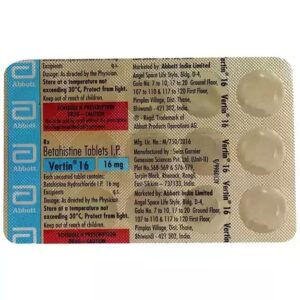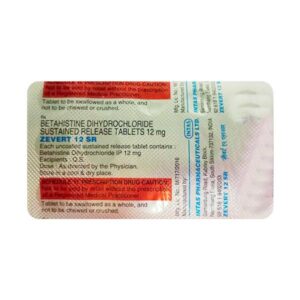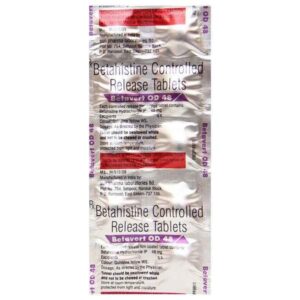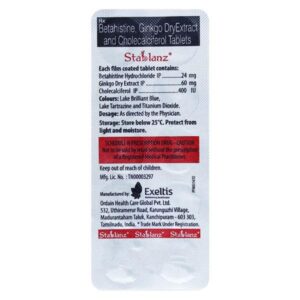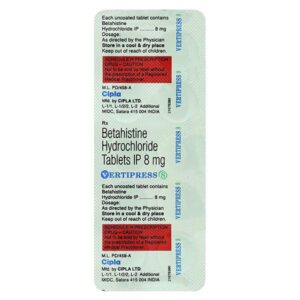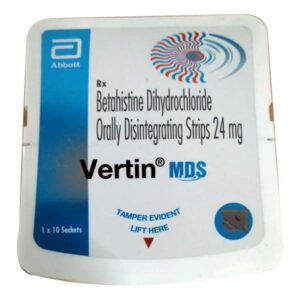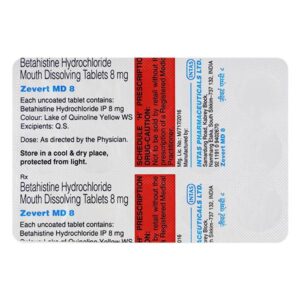BETAHISTINE
BETAHISTINE: BetaHistine is a medication used primarily in the treatment of Ménière’s disease, a disorder of the inner ear that causes vertigo (dizziness), tinnitus (ringing in the ears), and hearing loss. It is also sometimes used off-label for the treatment of certain types of vestibular vertigo.
The exact mechanism of action of BetaHistine is not fully understood, but it is believed to work by improving blood flow to the inner ear and reducing the pressure in the endolymphatic compartment. This helps to restore normal balance and reduce the symptoms of vertigo, tinnitus, and hearing loss.
The usual recommended dose of BetaHistine for Ménière’s disease is 16 mg to 48 mg per day, divided into 2 or 3 doses. The dose may be adjusted based on individual response and tolerance. It is important to follow the instructions provided by your healthcare provider.
Some common side effects of BetaHistine include drowsiness, headache, upset stomach, nausea, and dry mouth. These side effects are generally mild and transient. However, if you experience any severe or persistent side effects, it is important to consult your healthcare provider.
It is worth noting that BetaHistine is generally well-tolerated, and serious adverse effects are rare. However, as with any medication, there is a risk of allergic reactions or interactions with other drugs. It is essential to inform your healthcare provider about any other medications you are taking and any underlying medical conditions you have before starting BetaHistine.
Overall, BetaHistine is an effective drug for the management of Ménière’s disease and some types of vestibular vertigo. However, it is important to consult with a healthcare professional to determine if BetaHistine is the right treatment option for you and to ensure proper dosing and monitoring.



